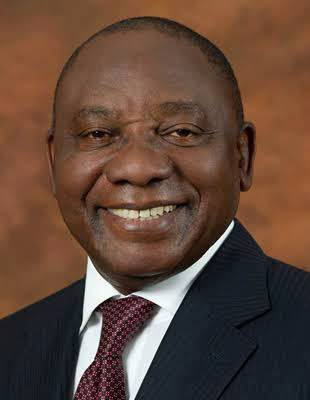
President Cyril Ramaphosa on Wednesday marketed the African continent as the next growth frontier.
“Africa is on the cusp of a new era. As we launch the implementation phase of the African Continental Free Trade Area (AfCFTA), we are closer to our ambition of creating a free trade area stretching from Cape to Cairo,” he said.
Addressing the South Africa-Japan Business Forum in Yokohama, Japan, President Ramaphosa said the AfCFTA will create one of the largest free trade blocs in the world with a rapidly growing population of 1.3 billion people.
“Taken as a whole, Africa is already the world’s eighth largest economy and is set to expand rapidly over the coming decades,” said the President at the engagement held at automotive group Nissan Global Headquarters.
This engagement by the President forms part of his working visit to Japan, where he arrived on Tuesday to participate in the 7th Tokyo International Conference on African Development (TICAD).
The AfCFTA aims to make doing business on the continent easier and encourages African countries to trade among each other while addressing issues that stifle intra-African trade such as high transport costs and cumbersome customs, among others.
President Ramaphosa told the gathering that while the African continent was defined by political instability for many years, today there is an increasing number of open and accountable governments that seek to support development.
The continent, the President said, is endowed with natural wealth and incredible potential for the development of advanced manufacturing and services economies, while at the same time, populations across the continent continue to grow.
He stressed that the AfCFTA will require world class infrastructure and that the continent is investing significantly in large cross-border infrastructure projects.
These projects include liquid natural gas fields in Mozambique, new ports and rail lines across Southern Africa, and pan-African iron and steel initiatives. This is on the back of the African Development Bank estimating that the continent needs to spend between $130 billion and $170 billion a year to meet its infrastructure needs.
As these projects are realised, they will create new opportunities for investors with projects too large and complex to be undertaken alone.
SA’s role in infrastructure revolution
President Ramaphosa said South African firms have decades of experience working on the continent, and are ideally positioned to assist new and established investors in Africa.
As the most diversified economy on the continent, South Africa has the skills, resources and manufacturing capability to help drive the development of productive infrastructure in Africa, and enable the participation of global partners like Japan.
“The coming infrastructure revolution, combined with the Continental Free Trade Area, means that manufacturing in Africa is the best way to sell in Africa,” the President said, adding that Africa’s Gross Domestic Product (GDP), which currently sits at almost US$3 trillion, is projected to be US$5 trillion by the end of 2030.
“This consumer market gives manufacturers in South Africa and on the African continent an incredible base from which to develop. As the most advanced industrial economy on the continent, South Africa is well positioned to serve as the launch pad into Africa and the global market,” the President said.
President Ramaphosa also used Wednesday’s forum to invite Japanese companies to participate in South Africa’s second Investment Conference scheduled to be held in Johannesburg from 5-7 November.
South Africa is implementing a revitalised industrial policy, which will see more effective support to a wide range of sectors – from automotives to metals fabrication and renewable energy.
South Africa is also hard at work reviewing the visa regime to smooth access for businesspeople, and is undertaking key reforms to promote certainty in areas like mining and telecommunications.
In May, President Cyril Ramaphosa officiated over the Japanese automotive giant’s announcement of a R3 billion investment at its Rosslyn plant in the capital of Pretoria.
Science and technology
President Ramaphosa also addressed a workshop dedicated to strengthening cooperation between Japan and Africa on science, technology and innovation.
At the workshop, the President said South Africa endorses the focus on science, technology and innovation as a priority theme for TICAD 7, given its great potential to accelerate African development through mutually beneficial partnerships with Japan.
“Africa wishes to significantly expand science innovation and technology capacity and to create institutions that will advance our research agenda and directly link our science endeavours to our development priorities,” he said.
TICAD is a multilateral leaders’ forum on African development that was first convened in Japan in 1993. The forum will conclude on Friday.